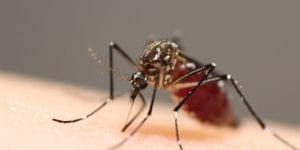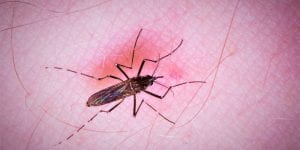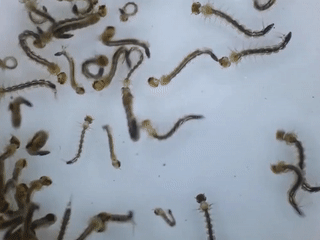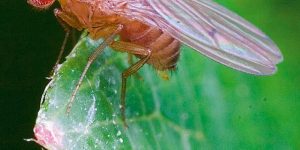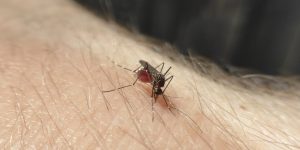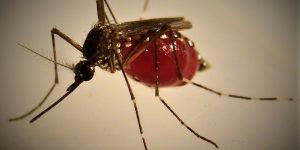Tag: zika
-
The resistance advantage – a field genetic background is important for survival of our Wolbachia mosquitoes in Malaysia and reduction of dengue
Banner image: Nancy with scientists from the Wolbachia dengue program at the Institute for Medical Research, Ministry of Health, Kuala Lumpur, Malaysia. Words and photos: Nancy M. Endersby-Harshman Our paper published two weeks ago in Insects is the result of a research collaboration between PEARG at the University of Melbourne, the Institute for Medical Research […] -
Releases of Wolbachia-infected mosquitoes for disease control
Words and images: Perran Ross When animals raised in captivity are released back into the wild, you might picture cute and furry mammals from an endangered species. But in many countries around the world, people are releasing mosquitoes raised in laboratories into the environment. These mosquitoes feed on human blood and are vectors of dengue, […]blogs.unimelb.edu.au/pearg/2019/09/18/releases-of-wolbachia-infected-mosquitoes-for-disease-control
-
Using bacteria to control mosquitoes Dr Tom Schmidt and Professor Ary Hoffmann “This article was first published on Pursuit. Read the original article.” Living inside the cells of insects is a type of bacteria that is looking increasingly like the key to controlling the spread of dengue fever, the Zika virus and other mosquito-borne diseases. […]
-
Collecting fresh mosquitoes | PEARG in the field
Words: Tom Schmidt Photos: Tom Schmidt and Perran Ross At PEARG, we have a great interest in environmental pests and how to deal with them. One of these pests is the mosquito Aedes aegypti, which causes catastrophic damage throughout the world’s tropical zone. Aedes aegypti spreads viruses such as dengue, Zika and chikungunya, and is […]blogs.unimelb.edu.au/pearg/2018/04/30/collecting-fresh-mosquitoes-pearg-in-the-field
-
The Wolbachia pandemic | Symbionts spread rapidly across highly diverged flies
Words: Perran Ross Cover photo: Andrew Weeks Wolbachia are perhaps the most prevalent bacterial symbionts on earth. Of the millions of insect species, Wolbachia are estimated to infect up to half of them. These bacteria are renowned for the effects they exert on their hosts, which can often be quite dramatic. Some Wolbachia strains are […] -
WOLBACHIA BACTERIA IN ACTION | How we’re using naturally occurring bacteria to stop mosquitoes from spreading disease
Words and images: Perran Ross Cover photo: Jason Axford Dengue is a major global health issue. It infects millions of people every year and can cause debilitating illness, inflicting joint pain, rash and fever. Without any effective vaccine, the best way to prevent dengue is to target the mosquitoes that transmit it. Dengue is spread […] -
New review | The detection and significance of emerging insecticide resistance in mosquitoes
Nancy, Andrew and Ary have a fresh review article in CSIRO’s ‘Microbiology Australia’ journal. Below is the abstract, for the full text please follow this link. Mosquito-borne arboviruses are increasing in incidence around the world. Australia enjoys some protection from pests and diseases afforded by its geographic isolation coupled with strict biosecurity control at its […] -
Picky feeders: Mosquitoes turn their nose up at non-human blood
Words: Ellen Cottingham Image: Perran Ross Most Australians have sat outside on a summers evening only to return inside to find their legs and arms dotted with fresh itchy mozzie bites. It is not widely known that only female mosquitoes bite warm blooded animals or humans. The reason for this is that females use protein […]blogs.unimelb.edu.au/pearg/2018/02/23/picky-feeders-mosquitoes-turn-their-nose-up-at-non-human-blood

